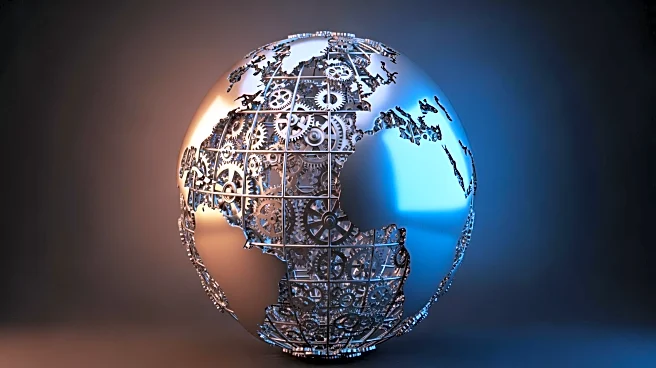What's Happening?
The global economic order is undergoing a significant transformation, moving away from super-globalisation towards self-reliance. This shift is driven by a universal desire for greater economic stability and national security. Historically, China has
been a pioneer in this approach, with its self-reliance campaign dating back 60 years. The trend is now becoming widespread, affecting Western nations as well. The change is marked by a move towards establishing new rules to replace the Bretton Woods system, reflecting the evolving power dynamics in a multi-polar world where the West's dominance is waning, and countries like China and those in the global south are gaining influence.
Why It's Important?
The shift towards self-reliance in the global economic order has profound implications for international relations and economic policies. As countries prioritize national security and economic stability, the traditional dominance of Western nations in global economic affairs is challenged. This could lead to a reconfiguration of international trade agreements and economic partnerships, impacting industries reliant on global supply chains. Nations that adapt to this new paradigm may gain economic resilience, while those slow to adjust could face economic vulnerabilities. The emergence of a multi-polar world suggests a redistribution of economic power, potentially altering geopolitical alliances and economic strategies.
What's Next?
As the global economic order continues to evolve, countries may increasingly focus on developing domestic industries and reducing dependency on international trade. This could lead to a rise in protectionist policies and a reevaluation of existing trade agreements. Major stakeholders, including political leaders and businesses, will likely engage in discussions to navigate this transition, aiming to balance self-reliance with the benefits of international cooperation. The establishment of new economic rules to replace the Bretton Woods system may be a focal point in upcoming international economic forums, as nations seek to redefine the global economic landscape.
Beyond the Headlines
The shift towards self-reliance may have deeper cultural and ethical implications, as nations reassess their roles in the global community. This movement could foster a sense of national identity and pride, influencing cultural narratives and societal values. Additionally, the focus on self-reliance may prompt ethical considerations regarding resource allocation and environmental sustainability, as countries strive to balance economic growth with ecological responsibility. Long-term, this trend could lead to a more diversified and resilient global economy, with nations developing unique strengths and capabilities.















